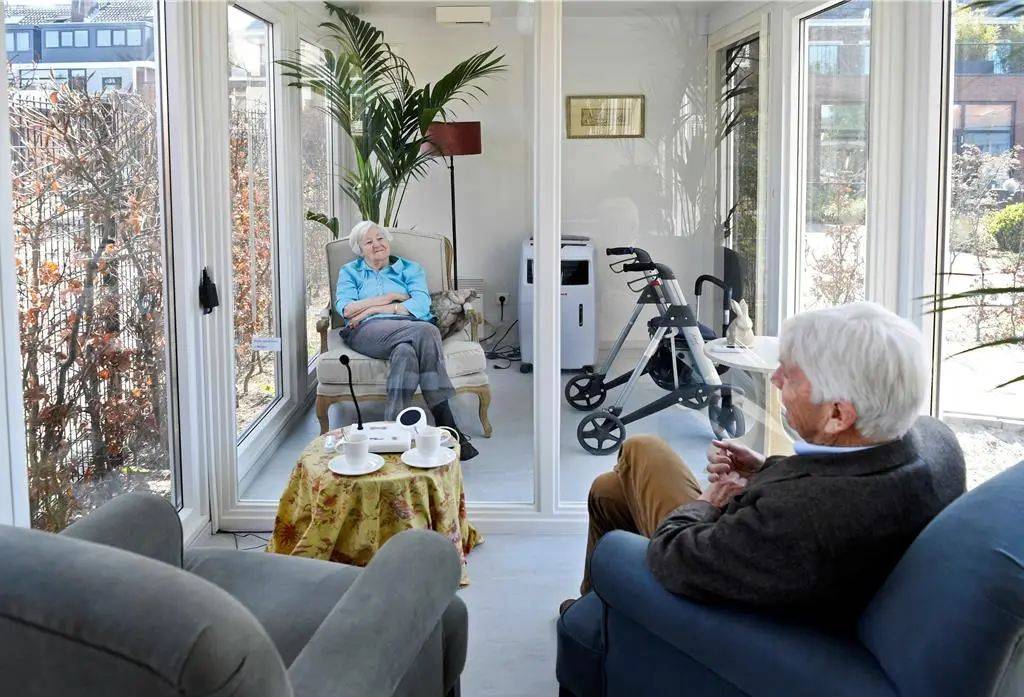Dementia can be prevented or delayed by controlling risk factors (Reuters)
Nearly half of global dementia cases can be prevented or delayed, according to a study, with experts listing 14 risk factors.
The Guardian reported that by 2050, the number of dementia patients worldwide will nearly triple to 153 million, posing a rapidly growing threat to health and social care systems. Globally, the health and social costs related to dementia exceed $1 trillion annually.
However, in a report published in The Lancet, 27 leading dementia experts globally concluded that the number of cases that can actually be avoided or delayed is much higher than previously thought.
The Lancet Dementia Commission stated that out of 14 modifiable risk factors that span from childhood and throughout the life course, 45% of dementia cases can be prevented or delayed, even as life expectancy increases. These findings were presented at the Alzheimer’s Association International Conference in the US.
Lead author of the study, Professor Gill Livingston from University College London, said in an interview with The Guardian that it is becoming increasingly clear that millions of people can and should do more to reduce the risk of dementia.
Livingston stated at the Alzheimer’s Association International Conference, “Many worldwide believe dementia is inevitable, but that’s not the case. Our report concludes you can substantially reduce your risk of not developing or delaying the onset of dementia.”
She added that people of all ages, from children to the elderly, can take measures to reduce the risk of developing the disease – which currently has no cure – or at least delay its onset.
Based on the latest evidence, the report added two risk factors associated with 9% of dementia cases. Around 7% of cases are linked to high levels of low-density lipoprotein or bad cholesterol in midlife (from around age 40), while 2% of cases are attributed to untreated vision loss in later life.
These new risk factors are additional to the 12 factors identified by The Lancet Commission in 2020, which according to Livingston account for approximately 36% of dementia cases. These factors include low education level, hearing impairment, hypertension, smoking, obesity, depression, physical inactivity, diabetes, excessive alcohol consumption, traumatic brain injury, air pollution, and social isolation.
Experts wrote in the report, “The potential for prevention is high, and overall, almost half of dementia cases theoretically could be prevented by eliminating these 14 risk factors. These findings provide hope for dementia.”
Livingston highlighted that there is new evidence showing lowering dementia risk not only extends healthy years of life but also reduces the time dementia patients spend in poor health.
She said, “Healthy lifestyle choices, including regular exercise, not smoking, midlife cognitive activities (beyond formal education), and avoiding excessive alcohol consumption, can not only reduce dementia risk but also potentially delay onset.”
This means those who develop dementia would live with it for a shorter period, Livingston added, “This has a huge impact on quality of life for individuals and cost savings for society.”
Livingston stated that one of the simplest things people can do is incorporate some form of exercise into their daily lives, especially if they are predominantly sedentary.
To reduce dementia risk throughout life, The Lancet Commission proposed 13 recommendations, including providing hearing aids for those with hearing loss, reducing exposure to harmful noise, and screening and treating high cholesterol from around age 40.
Other recommendations include screening and treating vision loss for all, providing high-quality education for children, and maintaining cognitive activity in midlife.
In a separate study published concurrently in The Lancet Healthy Longevity, researchers used the UK as an example to simulate some economic impacts of implementing these recommendations.
They found that public health interventions targeting risk factors could save £4 billion ($5.14 billion) by reducing dementia incidence and helping people live longer and healthier lives.
Fiona Carragher, Chief Policy and Research Officer at Alzheimer’s Society, said, “Some dementia risk factors, such as drinking and exercise, can be managed by lifestyle changes, but many factors need to be addressed at a societal level.”
She noted, “Social isolation, educational inequality, and air pollution are beyond individual control and require public health interventions and joint action between government and industry.”
Dr. Susan Kohlhaas, Research Director at Alzheimer’s Research UK, warned that age and genetics still remain the biggest risk factors for dementia.
However, she stated that the discovery of several other health and lifestyle factors at play is positive news, as it provides “a huge opportunity for individuals and governments to develop preventive measures to alleviate the heavy burden dementia places on society and loved ones.”
Top Americans prioritize cultivating this skill in children over academics
Biden announces: Amend the constitution! Abolish the lifetime tenure of Supreme Court justices!
Give a rose to others and your hand will have residual fragrance👇“Share”


